•Menu
•Tin đọc nhiều
-
 NSND
Thanh
Nam
và
nghệ
sĩ
Chí
Tâm
ngồi
ghế
nóng
"Chuông
vàng
vọng
cổ"
lần
thứ
19
-
2024
NSND
Thanh
Nam
và
nghệ
sĩ
Chí
Tâm
ngồi
ghế
nóng
"Chuông
vàng
vọng
cổ"
lần
thứ
19
-
2024 -
 Tâm
Sự
Thần
Y
4.0
Tâm
Sự
Thần
Y
4.0 -
 Thông
diệp
của
cải
lương
điện
ảnh
Thông
diệp
của
cải
lương
điện
ảnh -
 Nhiều
người
trẻ
tâm
huyết
với
nghệ
thuật
hát
bội
Nhiều
người
trẻ
tâm
huyết
với
nghệ
thuật
hát
bội -
 “Đêm
huyền
thoại”
quy
tụ
nhiều
ngôi
sao
sân
khấu
cải
lương
“Đêm
huyền
thoại”
quy
tụ
nhiều
ngôi
sao
sân
khấu
cải
lương -
 Thí
sinh
Lê
Hoàng
Nghi
đoạt
giải
Chuông
vàng
vọng
cổ
lần
thứ
19
–
năm
2024
Thí
sinh
Lê
Hoàng
Nghi
đoạt
giải
Chuông
vàng
vọng
cổ
lần
thứ
19
–
năm
2024 - Giữ bản sắc cho cải lương tuồng cổ
-
 CAILUONGVIETNAM.COM
13/04/2004
-
13/04/2025
CAILUONGVIETNAM.COM
13/04/2004
-
13/04/2025
•Tin ngẫu nhiên
-
 Ca
Sĩ
Thanh
Tùng:
"Mẹ
nói
hồi
ký
của
ba
đúng
sự
thật"
Ca
Sĩ
Thanh
Tùng:
"Mẹ
nói
hồi
ký
của
ba
đúng
sự
thật" -
 Đưa
cải
lương
vào
game
show:
lợi
hay
hại?
Đưa
cải
lương
vào
game
show:
lợi
hay
hại? -
 Ba
tay
đấm
danh
trấn
giang
hồ
Ba
tay
đấm
danh
trấn
giang
hồ -
 Từ
'con
quạ'
Hữu
Phước
đến
'con
quạ'
Chí
Tâm
Từ
'con
quạ'
Hữu
Phước
đến
'con
quạ'
Chí
Tâm -
 Đời
chìm
nổi
của
3
tài
tử
Việt
đào
hoa
Đời
chìm
nổi
của
3
tài
tử
Việt
đào
hoa -
 Cuộc
“đấu”
cầm
ca
Cuộc
“đấu”
cầm
ca -
 NSƯT
Ngọc
Khanh:
Có
con
nước
nào
chảy
ngược
dòng
sông
NSƯT
Ngọc
Khanh:
Có
con
nước
nào
chảy
ngược
dòng
sông -
 Nên
duyên
vợ
chồng
nhờ
đờn
ca
tài
tử
Nên
duyên
vợ
chồng
nhờ
đờn
ca
tài
tử -
 Phản
ứng
của
cộng
đồng
mạng
với
Đường
Gươm
Nguyên
Bá
NMCV10
Phản
ứng
của
cộng
đồng
mạng
với
Đường
Gươm
Nguyên
Bá
NMCV10 -
 Phong
phú
chương
trình
nghệ
thuật
“Chào
hè
2013”
Phong
phú
chương
trình
nghệ
thuật
“Chào
hè
2013”
•Thống kê truy cập
![]() Đang
truy
cập
:
373
Đang
truy
cập
:
373
•Máy chủ tìm kiếm : 8
•Khách viếng thăm : 365
![]() Hôm
nay
:
113760
Hôm
nay
:
113760
![]() Tháng
hiện
tại
:
1815066
Tháng
hiện
tại
:
1815066
![]() Tổng
lượt
truy
cập
:
100277165
Tổng
lượt
truy
cập
:
100277165
 »
Tin
Tức
»
English
»
Tin
Tức
»
English

CAILUONGVIETNAM.COM 13/04/2004 - 13/04/2025
Sắp tới đây là kỷ niệm 21 năm ngày thành lập trang web cailuongvietnam.com (13/04/2004 - 13/04/2025) Dây là trang tin tức đầu tiên của cailuongvietnam.com từ năm 2004. Còn đuọc gọi là CLVNCOM1 . Thân mời các dộc giả xem những bằi mới hơn tại trang tin tưc CLVNCOM2 theo link dưới dây https://www.cailuongvietnam.com/newscl
THE SURVIVAL OF THE TRADITIONAL MUSIC (NHAC CO TRUYEN)
Đăng lúc: Thứ bảy - 05/07/2014 07:35 - Đã xem: 4536
Dung Thanh Lam & Kim Tuyen in ""Chiêu Quân Cống Hồ
The traditional music was always a poor relation compared to auters occidentalized musics. Before April 1975, with the National Academy of the music with Saigon, the classes of traditional instruments and arts traditional did not attract large world. The professors of traditional music had the complex of inferiority opposite the professors of Western music.
The spectacles of theatre renovated hat cai luong, the concerts of traditional music are less and less numerous for lack of spectators. The parents do not encourage the children to attend the Vietnamese spectacles, “tedious” for the young people who include/understand Vietnamese less and less, and in more it is necessary to pay expensive.
In Paris, only the couple of artists Trần Quang Hải and Bạch Yến has been devoted to the diffusion of the traditional music Vietnamese in the world for more than thirty years in the form of concerts, animations musical in the schools, conferences, recitals in the universities and museums, participations in many international festivals of traditional music. Among the taken refuge Vietnamese artists in particular three groups are noticed: Phương Oanh and its groupPhương Ca (song of the Phoenix), Hội Nghệ Sĩ Tỵ Nạn (Association of the Taken refuge Artists of Paris) and Quỳnh Hạnh, musician and ethnomusicologist.
Phương Oanh, former professor of zither at the school Hoa Sim in Saigon, arrived to France in 1976. She founded her group Phuong Ca (song of the Phoenix) in order to create a school of traditional music in Europe. She could join together forty girls and young people who manage to play rather well of the zither with 16 cords. Her work had a favorable echo among young Vietnameses, because the goal of Phuong Oanh is to combine to the traditional music Vietnamese with the Western harmony to create a acculturée new music, even occidentalized.
The Association of the Artists taken refuge of Paris, created in Paris in 1986 byHữu Phước, celebrates actor of renovated theatre (deceased in Paris in 1998), joined together a significant number artists known as Kiều Lệ Mai, Hà Mỹ Liên, Phương Thanh, Minh Đức, Kim Chi, Minh Thành, Hoàng Long. Hữu Phước tried to make revive the theatrical art of the South Vietnam, and obtained the soutine of a public increasingly many.
Quỳnh Hạnh arrived to France towards the end of the Eighties. She was a musician of zither with 16 cords and monocorde.She made her musicologic studies at the University of Paris 4-Sorbonne and currently she prepares a thesis of doctorate of musicology on the Vietnamese monocorde.She gave courses of music Vietnamese, courses of instrumental practice to young people of the community Vietnamese and concerts with the European and Vietnamese public.
In the United States, other artists seek to present the traditional music. The flutist Nguyễn Đình Nghĩa and his children, made at the United States in 1984 and now installed in Virginia, gave concerts very noticed during rounds in the American universities. Nguyên Dinh Nghia, known by his original interpretation of the musical part Phụng Vũ (dance of the Phoenix), continues his personal research while trying to remake suspended xylophones trung, lithophones starting from the stones found in the United States.
Mrs Bích Thuận, big actress of theatre renovated, arrived to France in 1983, but installed in the United States since 1985, did not succeed in gathering around her artists of value in exile to form a theatre company as there were some at one time in Saigon. She takes part of time in other in artistic evenings or the realization of video films for the Vietnamese public.
Việt Hùng, cofounder of the troop Hoa SEN with another actor Minh Chí, husband of the actress Ngọc Nuôi, arrived at the United States in 1975, carries out a calmer artistic life with plays turned for the video.
Hùng Cường, one of the young first of the renovated theatre with Saigon, settled in the United States since 1982. He was converted into music of varieties. After a transitory success at the beginning, he worked for the post synchronization of Chinese films and carried out rounds a little everywhere in the world. He is deceased in 1998.
Dũng Thanh Lâm, an actor famous with Saigon for his physique, after a beginning noticed in Paris, left to the United States. He earns his living there while playing in parts recorded into video and taking part in artistic evenings. Since the beginning of the year 2000, he carried out a project of several CD and Video for known parts of theatre renovated in California and obtained a growing support of the public.
La Thoại Tân, very appreciated in Saigon for its talents of actor, becomes organizer of spectacles and traditional instrumentalist. Finally he lends his voice to double Chinese films in California.
Kim Tuyến, big actress of renovated theatre, finally ceased playing of the theatre. She has sung now in the Vietnamese cabarets and starts to be known as singer of varieties for a few years.
Other artists like Hà My Hạnh, Thiên Trang, Bich Liễu, Ánh Hoa carry out an artistic life without glares.
Lữ Liên, father of the artists known as Bích Chiêu, Khánh Hà, Tuấn Ngoc and the group pop The Up Tight, arrived to France in May 1975, took part in the beginning with spectacles in America and Europe. Now he withdraws artistic life and begins the new life of lyric writer of the modern songs.
The actor Xuân Phát does not have any more artistic activities.
Huơng Lan, daughter of the actor Hữu Phước, is at the present time one of the actresses most popular among the Vietnamese taken refuge artists. She is the “uncontested queen” of the renovated theatre because her voice is the harmonious mixture of the famous voices of Út Bạch Lan, and Thanh Nga. Since her arrival in France in 1978, the renovated theatre did not go. She was directed towards the music of varieties and known as singer of varieties in the spectacles organized in the Vietnamese cabarets and restaurants. Since 1985, she left France for the United States and becomes the artist most asked in the community Vietnamese. She has been gone back to Vietnam several times for 5 years to be able to sing and play of the theatre in video films published in Vietnam.
Phong Nguyên, ethnomusicologist, specialist in Vietnamese music , after his studies in Paris, obtained the title of doctor in musicology. He then took refuge in the United States by finding there posts of teacher at the University of Kent (Ohio, the USA). He carried out a career of researcher but also of musician.
In Germany, live two “stars” of the renovated theatre : Phượng Mai and Thành Được. Phuong Mai, “queen” of the theatre hô quang (kind of sinicized theatre) earns her living with difficulty by making theatre. She tried to sing in the cabarets and was certain success. Then, she emigrated in the United States to remake her career in the Vietnamese business show. Since 1995, she passed several stays to Vietnam and collaborated with the artists of the country for the production of the plays sinicized of which it is the best actress.
Thành Được, since his installation in Germany in 1984, made rounds in Europe, Australia and in the United States. In spite of his reputation of “actor of charm”, is with the decline of his career. After 10 years in Germany, then in France, he left Europe for the United States where he currently opens a restaurant in San Jose in California to earn his living and leaves the world of the spectacles definitively.
Within ten years, the renovated theatre would fall can be in the lapse of memory for lack of young artists who would take the changing of the elder ones. The traditional music would undoubtedly survive longer but a lower level, because the young people turn more to the Western pop music or the music occidentalized new Vietnamese.
written by TranQuang Hai (France)
Translated by lekt & onlyyou - CLVN
Nguồn tin: cailuongvietnam.com
Những tin mới hơn
- Memories (07/09/2014)
- Vietnamese fashion shines in Rome (26/09/2014)
- Bai choi singing festival to be broadcast live (08/10/2014)
- Science Film Festival focuses on future technologies (20/10/2014)
- Trieu Trung Kien (29/08/2014)
- Actress Thanh Thanh Hoa – The Gold Medalist of the Prestigious Thanh Tam Award in 1961 (19/08/2014)
- Early days in Le Thuy’s performing career (23/07/2014)
- The meaning & history of SaiGon - Ý nghĩa và lịch sử Sài Gòn (29/07/2014)
- Actress Thanh Thanh Hoa – The Gold Medalist of the Prestigious Thanh Tam Award in 1961 (15/08/2014)
- Actress Bich Hanh’s biography and memories (12/07/2014)
Những tin cũ hơn
- Sixty Zitherists perform in HCMC (03/07/2014)
- Actor Viet Hung (28/06/2014)
- Vọng Cổ : Sáu Câu (Six Phrases) (18/06/2014)
- Actress UT BACH LAN – An Artist’s Life is Like a Short-lived Flower (11/06/2014)
- Bach Tuyet, A Precious Gem of Cai luong (06/06/2014)
- HISTORY OF VIETNAMESE MUSIC (03/06/2014)
- Cai luong legend comes to life in photos (29/05/2014)
- Vietnam has full Vietnam has full foundation on sovereignty over Hoang Sa, Truong Sa (27/05/2014)
- Ex-ethnic beauty queen says victory made her miserable (25/05/2014)
- Vietnam provinces pledge support foreign investors after riots (18/05/2014)
Mã
an
toàn:
![]()
•CHUYỂN ĐẾN WEBSITE...
•Tin mới nhất
-
 CAILUONGVIETNAM.COM
13/04/2004
-
13/04/2025
CAILUONGVIETNAM.COM
13/04/2004
-
13/04/2025 -
 Thí
sinh
Lê
Hoàng
Nghi
đoạt
giải
Chuông
vàng
vọng
cổ
lần
thứ
19
–
năm
2024
Thí
sinh
Lê
Hoàng
Nghi
đoạt
giải
Chuông
vàng
vọng
cổ
lần
thứ
19
–
năm
2024 - Giữ bản sắc cho cải lương tuồng cổ
-
 “Đêm
huyền
thoại”
quy
tụ
nhiều
ngôi
sao
sân
khấu
cải
lương
“Đêm
huyền
thoại”
quy
tụ
nhiều
ngôi
sao
sân
khấu
cải
lương -
 Tâm
Sự
Thần
Y
4.0
Tâm
Sự
Thần
Y
4.0 -
 Thông
diệp
của
cải
lương
điện
ảnh
Thông
diệp
của
cải
lương
điện
ảnh -
 NSND
Thanh
Nam
và
nghệ
sĩ
Chí
Tâm
ngồi
ghế
nóng
"Chuông
vàng
vọng
cổ"
lần
thứ
19
-
2024
NSND
Thanh
Nam
và
nghệ
sĩ
Chí
Tâm
ngồi
ghế
nóng
"Chuông
vàng
vọng
cổ"
lần
thứ
19
-
2024 -
 Nhiều
người
trẻ
tâm
huyết
với
nghệ
thuật
hát
bội
Nhiều
người
trẻ
tâm
huyết
với
nghệ
thuật
hát
bội -
 Nghệ
sĩ
Bích
Thuận
qua
đời
Nghệ
sĩ
Bích
Thuận
qua
đời -
 Vở
"Sấm
vang
dòng
Như
Nguyệt"
-
dấu
ấn
mới
của
NSƯT
Chí
Linh,
Vân
Hà
Vở
"Sấm
vang
dòng
Như
Nguyệt"
-
dấu
ấn
mới
của
NSƯT
Chí
Linh,
Vân
Hà
•Đăng nhập thành viên
- Những Vở Diễn Hay KIỆT TÁC SÂN KHẤU THẾ GIỚI: LÔI VŨ
- Nghệ Sĩ Tâm Sự Ngọc Huyền 'vẫn bị cấm hát tại Việt Nam'
- Đời Thường Nghệ Sĩ Con dâu trẻ của NSUT Thoại Miêu qua đời chưa đầy 2 năm cưới
- Đời Thường Nghệ Sĩ Nghệ sĩ Tú Sương kết hôn với Việt kiều
- Tâm Tư Thành Viên Người trong giới tự nói gì về nghệ sĩ Mỹ Châu ?
- Trong bầu trời nghệ thuật sân khấu cải lương, nghệ sĩ Thành Được mãi là ngôi sao sáng vĩ đại. Ông đã...
- Tôi cũng biết một soạn giả có tên YÊN BA, nhưng tên thật là PHẠM DIỆP PHƯƠNG, là quân y, KBC 7019
- Bài viết khá đầy đủ về cuộc đời của thầy Văn Hải. Có vài lỗi chính tả không nên có
- thag điên nai ma diên cai gi . toan bac chuoc nsut thanh nam . bat chuoc kieu ngu
- Tôi rất mong chờ để được xem cải lương nhưng thật thất vọng.
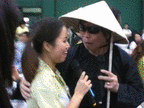
CAILUONGVIETNAM.COM 13/04/2004 - 13/04/2025
Sắp tới đây là kỷ niệm 21 năm ngày thành lập trang web cailuongvietnam.com (13/04/2004 - 13/04/2025) Dây là trang tin tức đầu tiên của cailuongvietnam.com từ năm 2004. Còn đuọc gọi là CLVNCOM1 . Thân mời các dộc giả xem những bằi mới hơn tại trang tin tưc CLVNCOM2 theo link dưới dây https://www.cailuongvietnam.com/newscl

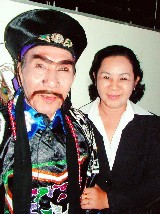

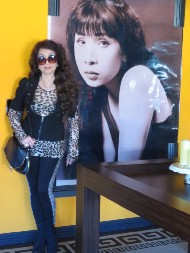






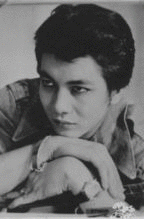




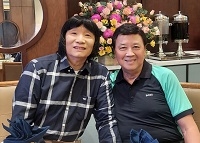
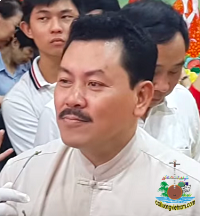
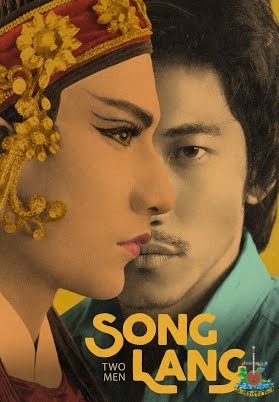

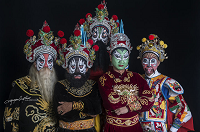
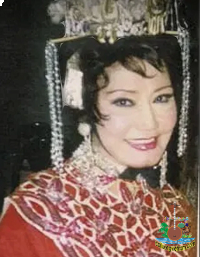



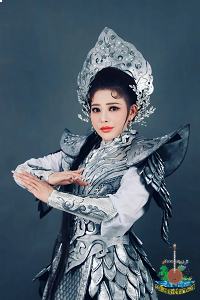

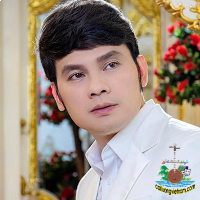
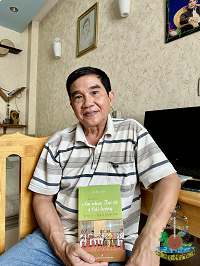










Ý kiến bạn đọc